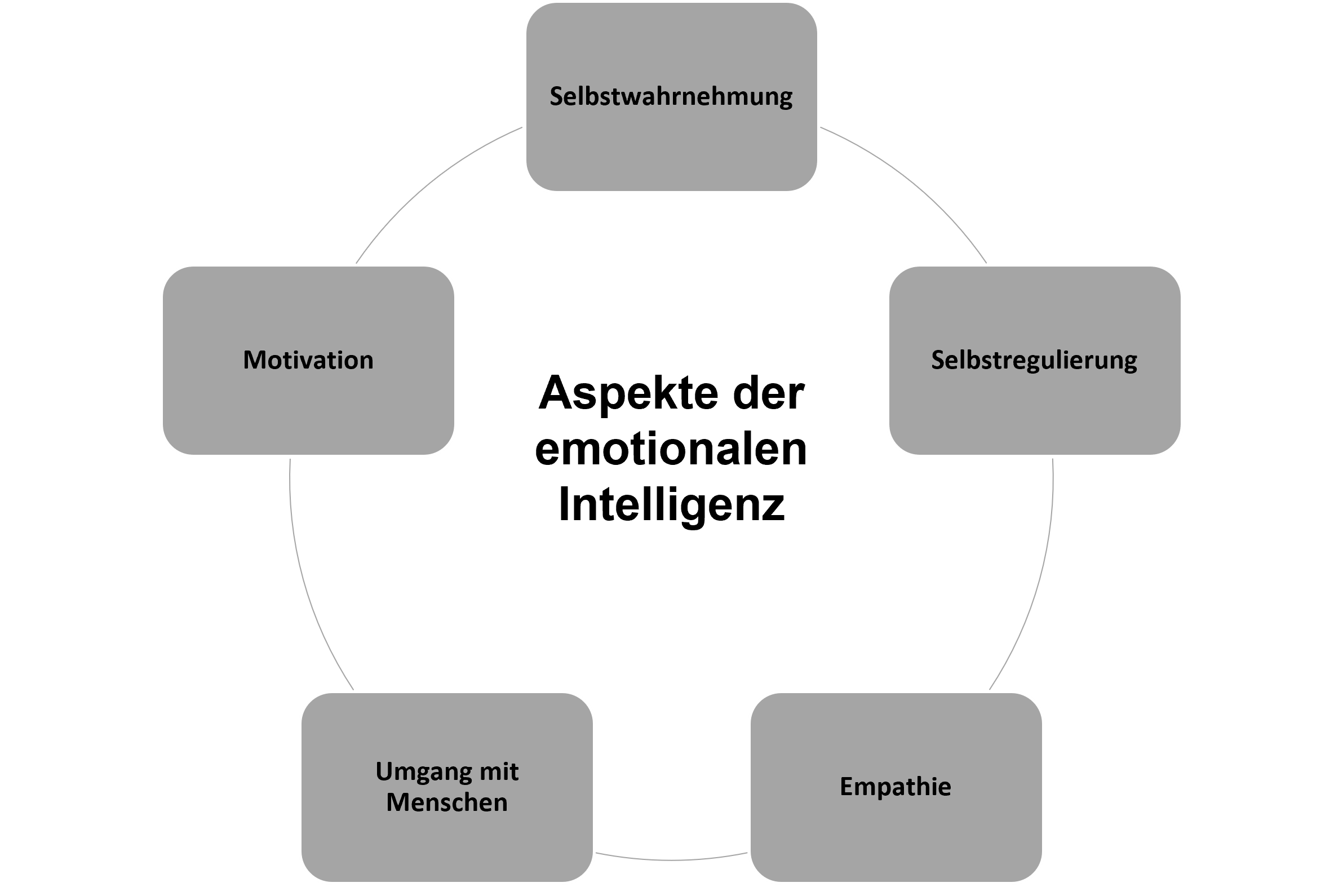Emotional Intelligence
These 5 factors will tell you if you are emotionally intelligent

Everyone has encountered the term "intelligence quotient (IQ)" at some point in their lives. But very few people know that there is also the emotional intelligence quotient (EQ). We want to take a closer look at this here.
Definition
The term "emotional intelligence" means the ability to perceive not only one's own feelings, but also those of others. However, this is not about the pure recognition of emotions, but about the correct perception of them and the ability to influence them. This happens through facial expressions, gestures and tone of voice.
Origin
Emotional intelligence was first named "social intelligence" in 1920 by the American psychologist Edward Lee Thorndike. In the early 1990s, two Americans, the psychologist John D. Mayer and the social psychologist Peter Salovey, did research in the field of "emotional intelligence" and introduced this term as a technical term.
However, the term only became famous in the mid-1990s thanks to the US psychologist and best-selling author Daniel Goleman. He wrote a book on the subject, which became a huge success internationally. The title of the book is: EQ. Emotional intelligence.
Is Emotional Intelligence Measurable?
If you search the internet for EQ tests, you will be overwhelmed with different tests. Everyone should question the seriousness of these tests for themselves.
How can emotional intelligence be measured at all? Similar to an IQ test, questions are asked that test social skills.
John D. Mayer and Peter Salovey together with the psychologist David R. Caruso developed the so-called "Mayer-Salovey-Caruso Emotional Intelligence Test (MSCEIT)". It is the most commonly used test to verify EQ.
In this test, the subject's EQ is divided into 4 different areas:
The Perception Of Emotions
In this area, a further subdivision is made between the perception of emotions in faces and the perception of emotions in designs, landscapes and images; since the abilities of the people tested differ greatly in both parts.
The Use Of Emotions
There are two sections here. One tests the ability to accurately identify emotions. The other part deals with the comparison of emotions with other sensory factors.
Understanding Emotions
It is tested to what extent the test persons are able to recognize and name several emotions in interlocking situations.
Influencing Emotions
In this part, the test persons are asked about their handling of emotions. This is used to determine how well the respondents are able to change their own emotional state (e.g. convert anger into balance). The ability to manipulate other people's feelings for their own benefit is also tested here.

What Is Emotional Intelligence?
According to Goleman, there are 5 key factors in emotional intelligence:
Self-Awareness
This is about the ability to be aware of your own strengths and weaknesses.
In the realm of emotional intelligence, this means that people with healthy self-awareness are able to look at their feelings and emotions from an objective standpoint.
Self-Regulation
Self-regulation is the ability to control impulses. People with this strength are able to respond to emotions such as B. anger, annoyance or even fear to react in a controlled manner. They don't just let their feelings guide them.
Empathy
Empathy is one of the strongest aspects of emotional intelligence. An empathic person has the ability to put themselves in other people's shoes and understand their emotions.
Dealing With People
This is about the ability to build and maintain a bond with other people. Social contact with fellow human beings is essential.
Motivation
This point is about intrinsic motivation . This is characterized by passion and ambition for a specific topic. Sticking to a goal despite major hurdles and striving towards it shows a high level of motivation.
Conclusion
The higher the emotional intelligence quotient of a person, the greater his inner strength. People with a high EQ are able to deal confidently with severe blows of fate and crises and not just be guided by emotions.